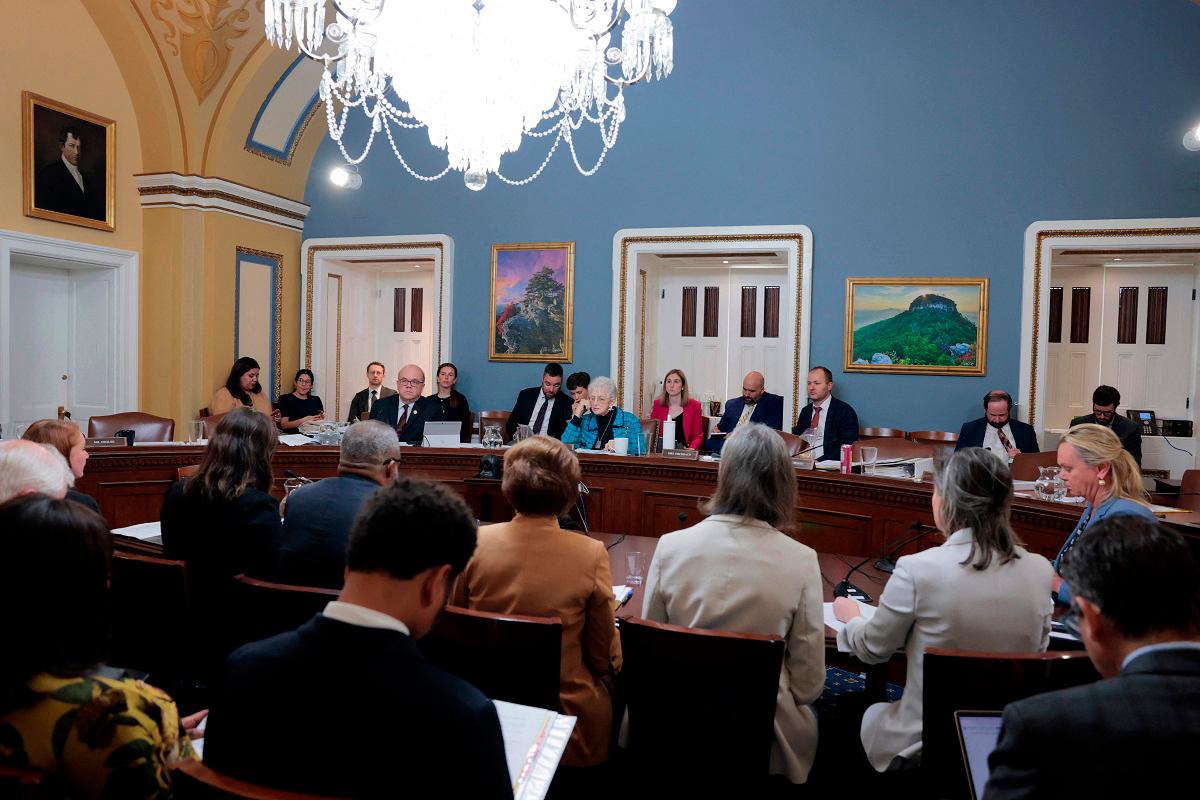WASHINGTON: The Republican-led US House of Representatives voted Thursday to approve President Donald Trump’s sprawling tax relief and spending cuts mega-bill that critics warn would decimate health care while ballooning the debt.
The “One Big, Beautiful Bill Act” -- which now moves to the Senate -- would usher into law Trump’s vision for a new “Golden Age,“ led by efforts to shrink social safety net programs to pay for a 10-year extension of his 2017 tax cuts.
“Legislation of this magnitude is truly nation shaping and life changing,“ said House Speaker Mike Johnson ahead of the largely party-line vote, which capped a marathon debate that went through the night.
“It’s the kind of transformational change that future generations will study one day. They’ll look back at this day as a turning point in American history.”
The mammoth package passed along party lines -- 215 votes to 214 -- after Republican leadership quelled a rebellion on the party’s right flank that threatened its passage.
It is the centerpiece of Trump’s domestic policy agenda that could define his second term in the White House.
On top of unified Democratic opposition, the package had faced skepticism from Republican fiscal hawks who say the country is careening toward bankruptcy, with independent analysts warning it would increase the deficit by as much as $4 trillion over a decade.
The nonpartisan Congressional Budget Office (CBO) predicted it would boost the incomes of the richest 10 percent while making the bottom 10 percent poorer, through hundreds of billions of dollars in cuts to health care and food aid.
The White House Council of Economic Advisors has made hugely ambitious projections, well outside the mainstream consensus, that the package will spur growth of up to 5.2 percent.
And Trump’s press secretary Karoline Leavitt claimed the bill “does not add to the deficit,“ and would actually save $1.6 trillion through spending cuts.
But investors were unconvinced as the yield on the 10-year US Treasury note surged to its highest level since February on Wednesday, amid worries over the budget-busting bill’s bottom line adding to the $36 trillion US debt burden.
‘Devastating’
Democrats called the bill “devastating” for the middle class, pointing to CBO estimates that its cuts to public health insurance for low-income Americans would deprive 8.6 million people of coverage.
House Minority Leader Hakeem Jeffries called the bill “the largest cut to health care in American history... in order to enact the largest tax breaks for billionaires in American history.”
Trump has seen his polling numbers plummet in his early months back in office, but success in the House for his signature legislation underlined his continued sway over the party’s quarrelsome and deeply polarized lawmakers.
The president had pressured the party to back the controversial package in a rare Capitol Hill visit Tuesday after it hit a series of roadblocks pitting conservative fiscal hawks against moderate coastal Republicans.
Speaker Johnson was only able to lose three members in Thursday’s vote.
Multiple conservatives initially appeared ready to reject the bill, but a follow-up meeting with Trump on Wednesday was credited with persuading some of the holdouts to fall into line.
Fiscal hawks were unhappy that proposed cuts of more than $700 billion to the Medicaid health insurance program were not deeper -- a red line for moderates and possibly for Trump, who told the party in coarse terms not to touch the social safety net.
To appease his right flank, Johnson moved up the enforcement of work requirements for Medicaid recipients by two years to the end of 2026 and agreed to phase out clean energy tax credits earlier.
Meanwhile a group of moderate northeastern Republicans pushing for huge increases in the state and local tax write-off secured a compromise of a four-fold hike, from $10,000 to $40,000.
But the bill is likely to undergo at least a month of significant rewrites in the Senate, which plans to get the package to Trump’s desk by July 4.









